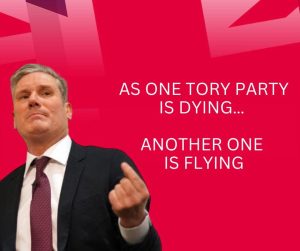The Labour Party government will need to increase public investment from current levels of about 2.5% of GDP per year to about 5%, equivalent to an extra £50 billion a year, approximately, if the UK economy is to succeed in the long term. That’s according to the latest quarterly UK Economic Outlook by the National Institute of Economic and Social Research (NIESR).
Labour: targeted public investment says NIESR
More specifically, the think tank recommends targeted public investment projects in key areas such as housing, transport connectivity, education and skills, with close coordination of a national growth strategy with local and regional growth plans.
Boosting public – as well as private – investment is the first essential step to start resolving four major issues the new government has inherited, namely:
- Low trend productivity growth.
- A fiscal framework that is stifling much-needed public investment.
- Declining living standards for the least well-off.
- Persistent regional inequality.
Over the life of this parliament, the NIESR forecasts output to grow at around 1.2% per annum and the unemployment rate to remain around 4.5%, while inflation rises over the second of this year and the first half of next year before returning to target in the medium term.
Under current spending and tax plans, the NIESR projects the budget deficit to remain above 3% of GDP and public debt at around 100% of GDP. This suggests that, in line with current fiscal rules, the new government can only raise spending on public services, infrastructure, defence, and the transition to net zero if it is prepared to increase taxes to pay for it.
Rethinking the fiscal framework
However, the NIESR analysis also finds that over the last five years the gap in living standards between the prosperous parts of the UK and poorer areas has widened, and productivity differences have also increased.
Furthermore, its projections suggest that unless fundamental changes are implemented, there will be no significant progress on narrowing the economic and social gap by 2030 or even 2035.
Professor Stephen Millard, deputy director for macroeconomic modelling and forecasting, said:
The new government has inherited an economy with low investment and low productivity growth, and it is these issues that need to be tackled. In addition, public spending needs to rise if public services are to be brought up to scratch, the nations and regions of the United Kingdom outside London and the South East are to see the regeneration they need, and the government is to meet the mandated target of achieving net zero by 2050. This will mean either higher taxes or higher borrowing or both, and that in turn will require a rethink of the fiscal framework.
Professor Adrian Pabst, deputy director for public policy, said:
The Government’s mission-driven approach and the creation of an Industrial Strategy Council have the potential to overcome barriers to better economic policy-making such as policy and ministerial churn, departmental silos and a lack of coordination across Whitehall. While these are necessary and welcome steps, they are not sufficient to reduce regional and local inequalities substantially.
Higher economic growth is not in itself a mission but rather the outcome of a coherent programme of reforms, combined with a credible commitment to ramp up public investment and disburse regional funds. The government needs an overarching strategy to rebuild state capacity, not tinkering at the edges.
Featured image via the House of Commons




